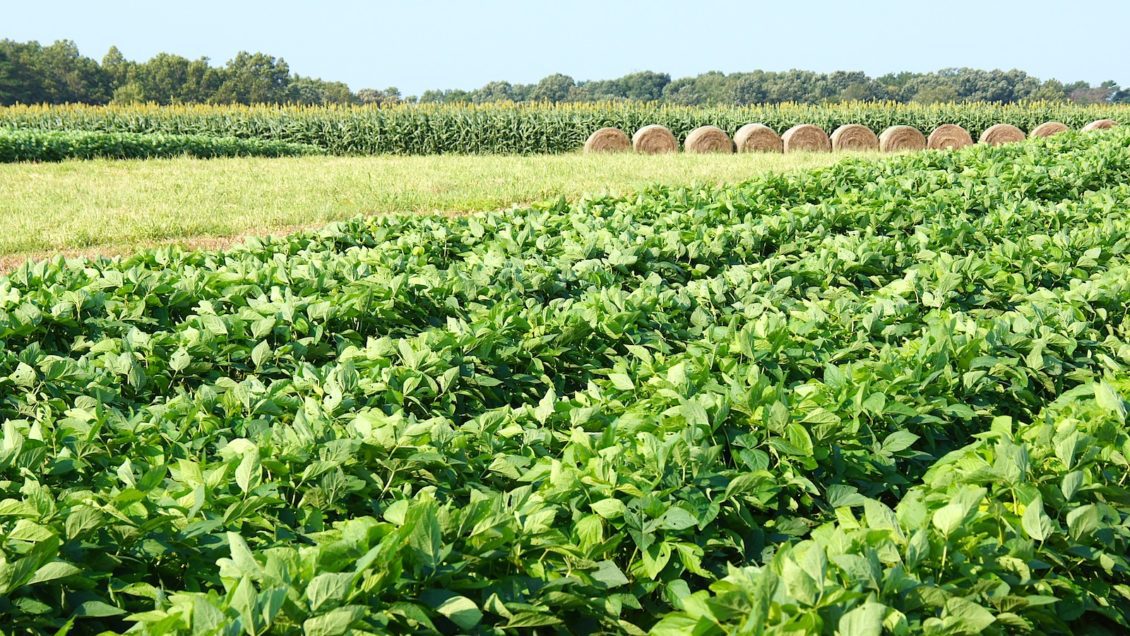Higher agricultural production costs are in store for the new year, but Clemson University Cooperative Extension Service specialists have a few suggestions to help relieve some of the impacts on South Carolina farmers.
The first bit of advice comes from Clemson Farm Business Consultant Scott Mickey who says farmers should “pay attention to production costs and what the market is offering.” Mickey, who is stationed at the Clemson Sandhill Research and Education Center (REC), gave this advice to about 100 farmers during the annual South Carolina Corn and Soybean Meeting.
“Production costs including energy, fertilizer and fuel prices are higher,” Mickey said. “Fertilizer and fuel are more than double what they were last year. These costs impact much of the farmers’ budgets. Pay close attention to production costs and what the market is doing so that you can avoid any surprises.”
Other expenses such as crop protection and insurance also are among the rising production costs. Mickey reported crop insurance prices are higher for corn and soybeans, with corn at $5.60 per bushel and soybeans at $12.45.
“These numbers do not paint a pretty picture, but that’s what we’re faced with,” he said.
Soybean growers also should pay close attention to South America, where soybean acreage has doubled in the past 20 years. The South American harvest can impact prices in the United States.
As for South Carolina soybeans, Michael Plumblee, Clemson Extension corn and soybean specialist located at the Edisto REC, reported 390,000 acres of soybeans were planted in the state in 2021. The projected soybean yield is 36 bushels per acre.

“This is up from 35 bushels per acre in 2020,” Plumblee said. “Corn yield is up too. About 420,000 acres of corn were planted in the state this year, with the projected corn yield at 134 bushels per acre. This is up from 132 bushels per acre in 2020.”
Plumblee also discussed a study funded by the S.C. Soybean Board, evaluating the effects of rain on bifenthrin insecticide. From this research, it was concluded that bifenthrin provides good insect control in soybeans even when simulated rainfall was applied 0 to 30 minutes after application.
“No significant differences were found with respect to wash-off intervals,” he said. “Furthermore, water alone did not impact insect presence.”
Plumblee also reported on crop issues faced in the 2021 growing season, county corn hybrid trial results, and a soybean trial evaluating planting date by maturity group.
John Mueller, a plant pathologist also stationed at the Edisto REC, advised farmers using fungicides to start planning early.
“There was a shortage of some fungicides in 2020,” Mueller said. “We don’t know what availability will look like this year, so consider looking into the supply of any fungicides you want to use as soon as you can.”
Glen Harris, an Extension agronomist from the University of Georgia, advised farmers “get back to the basics” and fertilize or “feed the soil and not the plant.” Feeding the soil involves replenishing nutrients, as well as improving texture so that the soil aerates as needed and is better able to retain moisture, providing a suitable habitat for essential microbes.
Determining where losses may be coming from in a field so that problems can be corrected is another means of ensuring success. Featured speaker Nathan Graham, harvesting product specialist from Case IH, a farm equipment manufacturer, explained how using the proper equipment can help farmers curtail losses. Graham talked about how using automated combines can “take the guesswork out of where grain losses may be coming from” in a field.
In addition to using the proper equipment, properly irrigating crops is another way to help ensure strong productivity. The Clemson Extension Water Resources Team has developed a new Extension program – the Center Pivot Irrigation Testing (CPIT) program – to help South Carolina farmers irrigate more efficiently. Kendall Kirk, water resources team member and Clemson Extension precision agriculture engineer, talked about this pilot program.
“The objective is to provide a health check of the pivots in a center pivot irrigation system,” Kirk said. “These tests measure irrigation uniformity. Lack of uniformity contributes to higher costs for growers and wasted water resources.”
Uniformity tests, conducted by Clemson Extension agents, provide graphs and maps of irrigation depths in relation to pivot center and tower locations, calibrated percent timer charts, positions of observed issues (clogs, leaks, etc.), estimated costs of under- and over-irrigation, estimated payoff period for sprinkler package retrofit, endgun shutoff positions and savings, irrigation costs, maximum application rate and more.
Contact a member of the Clemson Extension Water Resources Team for more information. A list of team members and their contact information can be found at https://www.clemson.edu/extension/water/team.html.
Water is one of the main issues affecting agriculture, said Harry Ott, president of the South Carolina Farm Bureau. Ott spoke about the “water battle” farmers are constantly fighting, as well as other issues the state’s agriculture sector faces. He encouraged those present to contact his office “to help find solutions” for these issues.
Laura Jordan from the South Carolina Department of Agriculture talked about the South Carolina Agricultural Tax Exemption (SCATE) program that rolls out for farmers in 2022. Beginning on Feb. 1 South Carolina farmers can apply for these cards from the South Carolina Department of Agriculture. After April 1 farmers must show their SCATE cards to claim sales tax exemptions. To apply for a SCATE card, go to www.scatecard.com.
-END-
Get in touch and we will connect you with the author or another expert.
Or email us at news@clemson.edu

